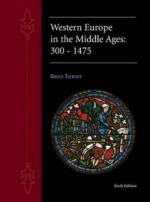|
This section contains 570 words (approx. 2 pages at 300 words per page) |

|
Arab Preservation of Learning. One of the positive outcomes of the Crusades was the new cultural interaction among the worlds of Judaism, Islam, and Christianity. Because most educated Romans read Greek as well as Latin, many ancient Greek philosophical works were never translated into Latin, and in the chaos that followed the fall of Rome many Greek texts were lost to the Latin West. They survived in the East, however, and many were translated into Arabic. Beginning in the early twelfth century, through exchanges with Jewish and Islamic scholars, western Christian scholars in Spain, Sicily, Antioch, and Tripoli came to know about all the works of Aristotle, which had survived in Arabic-language translations, and they discovered manuscripts in the original Greek as well. Furthermore, they discovered ancient scientific texts, such as Claudius Ptolemy's first-century Almagest (Great Mathematical Synthesis, a name acquired from...
|
This section contains 570 words (approx. 2 pages at 300 words per page) |

|




